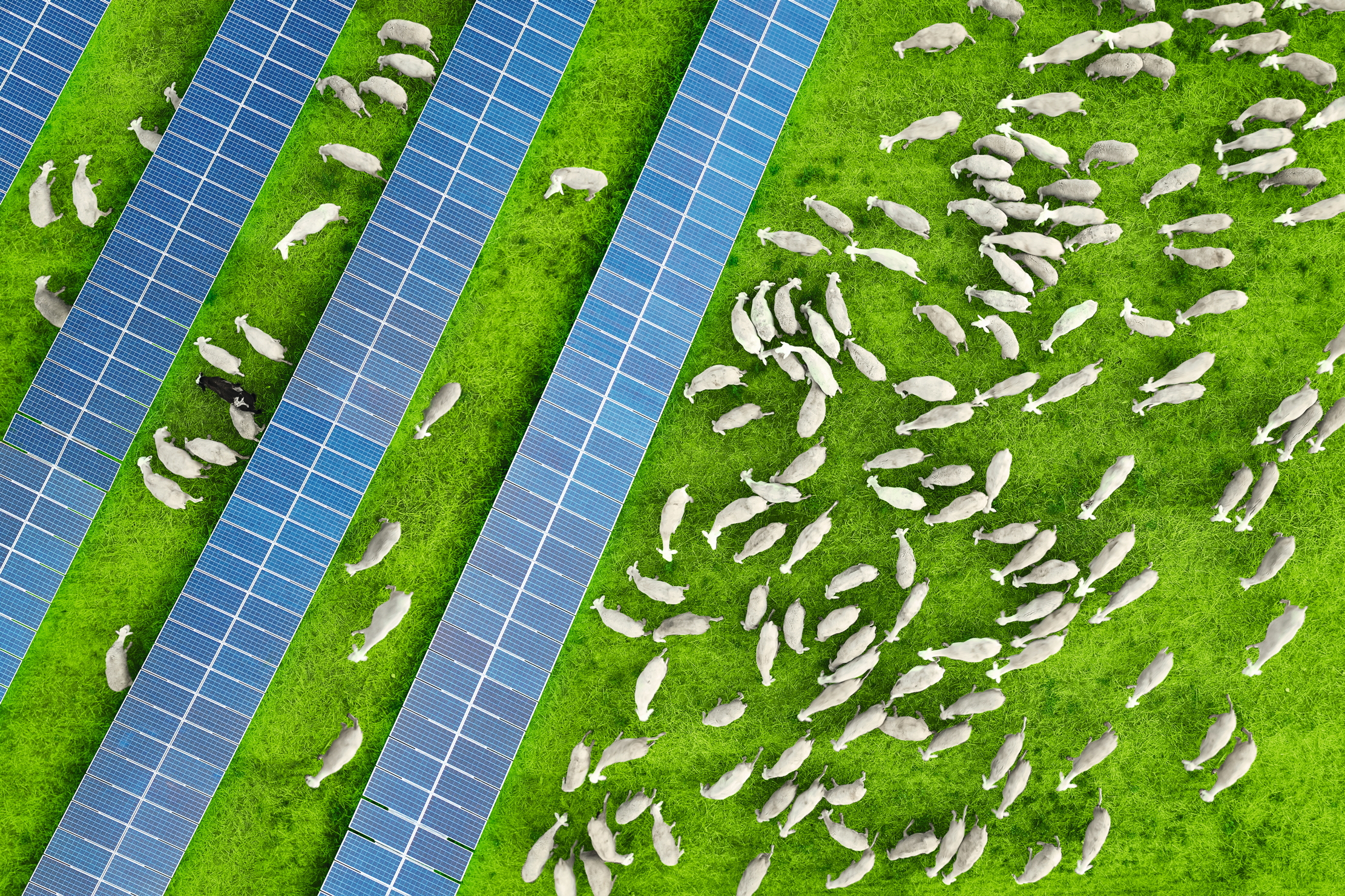William Kendall: 'We need to build a lot more solar farms and some wind turbines, too'
The thought of losing of productive arable land to renewable-energy developments can be dispiriting and alarming, but informed local knowledge may be the key to their successful design.


There are plenty of good reasons to question new building projects on our doorsteps and the inevitable accusations of NIMBYism should never be a deterrent. It’s mostly locals who have the time to study the details.
My home on the Suffolk coast is overwhelmed by new energy schemes and some of my neighbours, after years of research and campaigning, are now much more knowledgeable about their inadequacies than the experts who originally came up with the plans. Local expertise can frequently identify improvements.
However, it’s dispiriting when opposition is based on ignorance rather than hard facts, as it undermines those who do their homework. Country folk can be wary about any change, but most of us do accept that we need a lot more energy from renewable sources and that our villages and market towns could do with some more affordable homes. We have to accept that this will involve sacrificing some farmland for these other priorities.
Yes, solar panels should go onto the new factories and warehouses popping up everywhere; but, alone, their output will only deliver a fraction of what Britain requires for the future. We need to build a lot more solar farms and some wind turbines, too.
'Some will rage about the loss of ‘good agricultural land’, but with little knowledge of what that means.'
Some will rage about the loss of ‘good agricultural land’, but with little knowledge of what that means. You don’t have to wait long before some sage talks of Britain needing greater food security, albeit only because of their opposition to a particular building application.
Britain produces about 50% of the food it consumes. That’s better than before the Second World War. During that conflict, we pressed millions of fairly unproductive acres into more intensive food production at a moment of national need. Most of those press-ganged acres are still growing low-value cereals for a population now enjoying the fruits of a global harvest rather than one facing starvation. It is time to accept that, although Britain should make a bigger effort to feed itself, it also needs to confront the climate crisis and reverse the terrifying loss of insects and birds seen over the past 50 years.
About half of Britain’s arable farmland is given over to wheat production and we produce far more than we truly need. Wheat has been an essential part of the human diet for thousands of years, yet modern varieties have been selected for their yield rather than their nutritional content. These elite types are more dependent on fossil fuel-based inputs, yet their impact on the soil and the climate is known to be harmful. There is increasing interest in older varieties and the scientists are exploring their potential, but this market is as yet undeveloped, so most farmers still grow high-yielding, but low-value crops. Today, many lose money doing this.
Exquisite houses, the beauty of Nature, and how to get the most from your life, straight to your inbox.
It’s not a new idea for farms to be producing power. Ultimately, it’s all about how we best turn the sun’s energy into something we can use. For centuries, a good proportion of a typical farm was set aside to grow feed for the horses that worked the land. Fossil fuels released that area for cereals, which — with modern plant breeding — increased Britain’s wheat harvest. We grow far more than is needed for making our bread and breakfast cereals. Some is now harvested for bioethanol to fuel our cars. The same fields covered in solar panels could provide power for up to 15 times more road miles and at a lower environmental cost.
It’s hard to deny the case for more solar energy, but the countryside is in uproar over it. Is it that people prefer green fields to black panels? There’s no doubt that the former are rather cheering after a dull winter. However, the green is only bright because of the artificial nitrogen used and because there’s little else growing amid the main crop. You should compare it with the duller colour of my own organic wheat as winter fades into spring.
There is general agreement that the near-miraculous increase in yields over the past half century has come at a price for our soil. It is depleted of life and the ability to provide, on its own, the vital nutrients for a growing crop. Without the addition of expensive and climate-damaging artificial inputs, nothing really works any more.
'This loss of fertility is the reason why some say that farmland has become little more than a green desert'
This loss of fertility is the reason why some say that farmland has become little more than a green desert. If that’s the case, why not give it a breather for a generation and put some solar panels on the fields that are struggling the most? We only need to use a small proportion of the national acreage. Under the panels, there is room for a wonderful mix of grasses and wildflowers and for sheep to graze and probably new types of farming yet to be invented.
Rather than opposing all local projects, why not engage with the landowners and developers to see if you can influence the design? The newest projects seem to be getting much bigger, partly because smaller schemes have been turned down by local politicians after blanket opposition. This has encouraged developers to bypass them. Even a large scheme can be well landscaped and broken up around natural features.
Landowners are being offered good rental payments for their land, so they may be willing to offer up other parts of the farm for Nature and community benefits. Developers may offer cheaper electricity to the neighbourhood. A recent change in legislation makes it much easier for local communities, such as the village of Hook Norton, Oxfordshire, to set up their own energy supply alongside an existing connection to the grid and save money.
Britain has a government determined to see more renewable energy and housing built — it makes sense to accept this fact, but to ensure it’s done as well as possible on your patch.
This article was originally published in the July 16 issue of Country Life.
William Kendall is an entrepreneur behind the success of brands like New Covent Garden Soup Company, Green & Black’s and, more recently, Cawston Press. He advises a number of private businesses and is a Trustee of The Grosvenor Estate. He farms in Suffolk and Bedfordshire and is President of The Suffolk Wildlife Trust.
